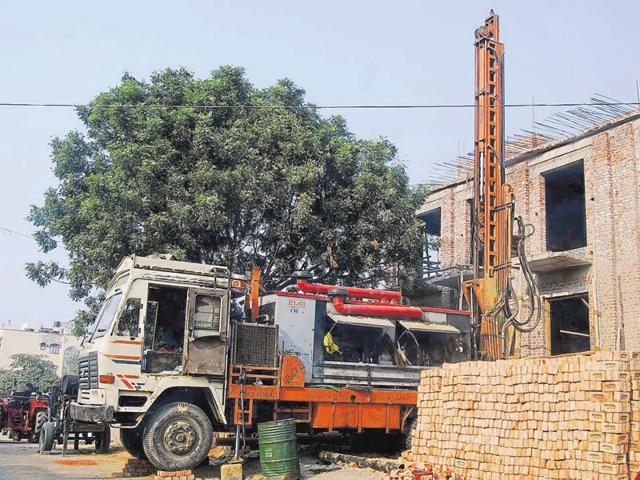Water harvesting key to ending Gurgaon’s plight: Experts
With more than half of Gurgaon’s population dependent on untreated water from illegal borewells and tankers during the dry season, it is glaringly obvious that supply is drastically inadequate when compared to demand.
With more than half of Gurgaon’s population dependent on untreated water from illegal borewells and tankers during the dry season, it is glaringly obvious that supply is drastically inadequate when compared to demand.

Erratic rainfall in the region, coupled with poor or no facilities to harvest rainwater, often lead to waterlogging in the city.
Also, the city’s inability to treat sewage and use it for non-drinking purposes has resulted in thousands of households facing a severe shortage in the summer.
An analysis by the Centre for Science and Environment (CSE) has warned that the city could turn into a dry state in a few decades, if corrective action is not taken at the earliest. Because of the depleting water table, which has gone down by hundreds of feet in some areas, a large number of tubewells has become defunct. The civic administration has failed to provide a solution to the problem.
Experts say the neglect of traditional ponds, indiscriminate wastage of water, failure to recycle and uncontrolled pumping of groundwater have brought Gurgaon to such a state. The only solution is rainwater harvesting.
The Jamia Millia Islamia in Delhi had prepared a draft master plan on ‘Feasibility and Design of Rainwater Harvesting the Master Plan of Municipal Corporation of Gurgaon (MCG) Area’.
The report was prepared by Professor Gauhar Mehmood and Sadiqa Abbas — faculty members of the department of civil engineering. It is being implemented by the MCG in the city. However, the city is still unable to deliver the expected result. A number of buildings still do not have rainwater harvesting structures, even as the district administration has made it mandatory for houses with more than 100 sqm of covered area to have a rainwater harvesting system in place.
Under the programme, the MCG area has been divided into 11 zones.
The total watershed area for the Master Plan is 88,250 acres while the average specific yield of the area is 21% and average water level fluctuation is 1.8 metres.
“In order to make the rainwater harvesting system effective, 30% of the total area is allocated for rooftops, 30% for roads and 40% for green areas,” Mehmood said.
According to Sushmita Sengupta, deputy programme manager of CSE, Gurgaon should have a sector-wise rainwater harvesting system.
“Government agencies, civil society, NGOs and citizens will have to come together to ensure that rainwater is harvested systematically,” she said.
“If water harvesting is carried out smartly, then it can improve the groundwater table, which is disappearing fast,” said Nitya Jacob, water expert and author of Jalyatra.




